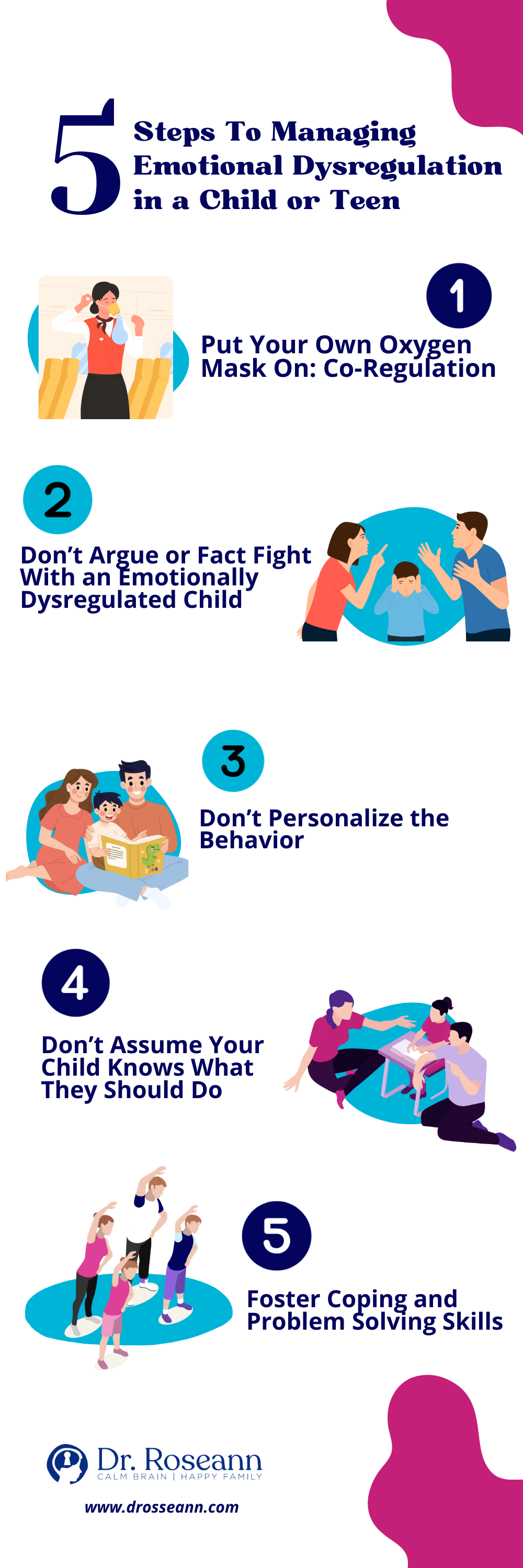As parents, supporting a child or teen with emotional and behavioral challenges, including emotional dysregulation disorder and ADHD emotional dysregulation, can be daunting. Every child's journey, whether they're a dysregulated toddler or an emotionally dysregulated child, is unique, making standardized approaches ineffective.
Navigating this complex territory of emotional dysregulation in children, understanding the emotional dysregulation symptoms, and identifying what triggers emotional dysregulation requires adaptability and perseverance.
This path, though filled with challenges like managing an angry kid or addressing behavioral dysregulation, offers opportunities for growth and a deeper understanding of childhood emotional disorder and related dysregulation issues.
#1 Put Your Own Oxygen Mask On: Co-Regulation
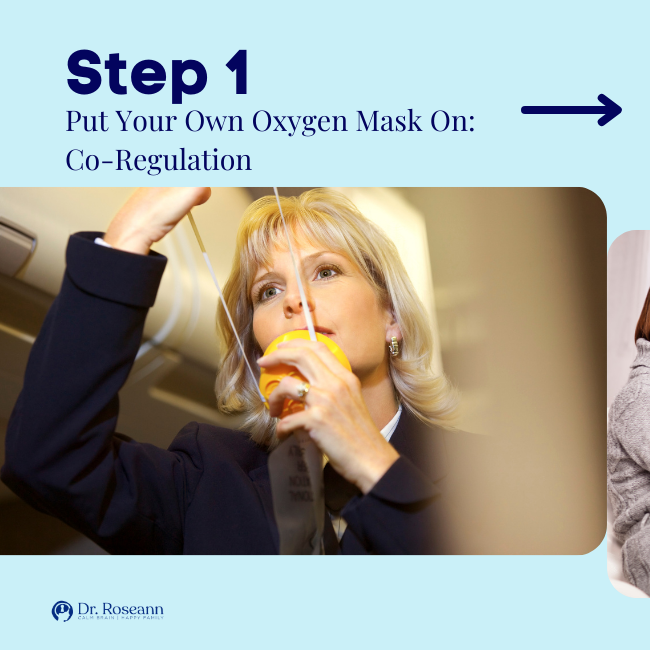
Addressing emotional dysregulation in children requires a parent's emotional regulation, especially in guiding a dysregulated toddler or an emotionally dysregulated child.
By embracing self-care and calmness, parents can effectively engage in co-regulation, crucial for managing dysregulation in toddlers and kids. This approach fosters a stable environment, aiding children in learning to manage their emotional dysregulation symptoms.
Say:
- Encouragements like “We can handle this together” can be pivotal in co-regulating emotional dysregulation in kids.
Don’t Say:
- Avoid criticisms or expressions of frustration, as these can intensify a child's emotional dysregulation, counteracting efforts to teach emotional self-regulation. Avoid statements such as, “Why can't you just calm down?” or “Stop overreacting all the time!”
#2 Don’t Argue or Fact Fight With an Emotionally Dysregulated Child
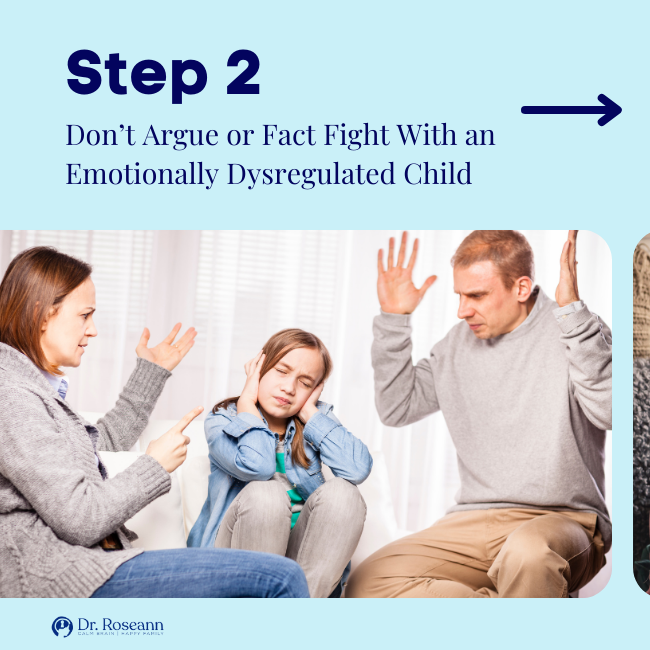
Addressing emotional dysregulation in children, particularly in moments of heightened emotional outbursts, requires a delicate approach. Rather than engaging in disputes or fact-fighting with a dysregulated child or an emotionally dysregulated kid, which may lead to behavioral dysregulation or exacerbate emotional dysfunction, a more empathetic response is beneficial.
Phrases aimed at calming a dysregulated child, understanding emotional dysregulation symptoms, and avoiding escalation are crucial.
Say:
- Use calming statements that align with effective strategies for how to calm a dysregulated child.
- “I see you're upset, let's talk about it.”
- “It's okay to feel this way; I'm here to help.”
- “I understand that you're feeling overwhelmed; let's find a solution together.”
Don’t Say:
- Refrain from argumentative responses or logical contradictions that can intensify the situation, especially important in managing emotional dysregulation in toddlers and older children.
- “Stop crying, it's not a big deal.”
- “You're just seeking attention.”
- “Why can't you be more like your sister/brother?”
- “I don't want to hear it unless you can speak calmly.”
#3 Don’t Personalize the Behavior
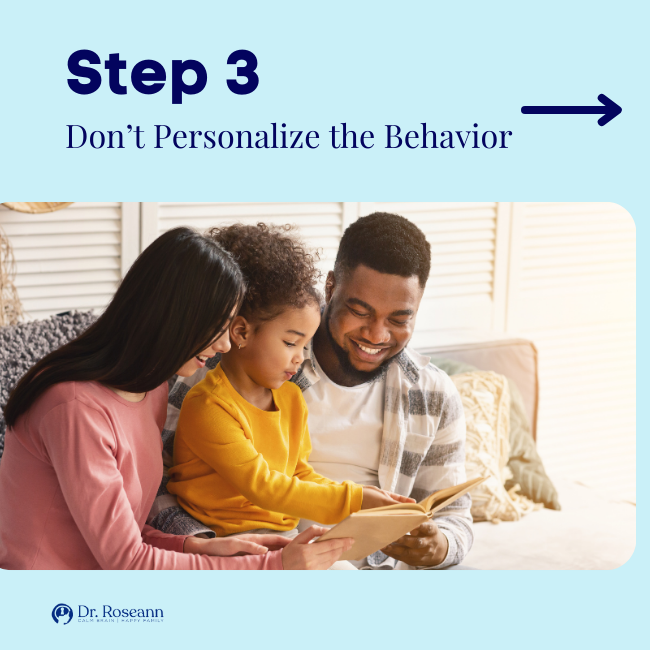
Understanding that a child's emotional dysregulation, such as emotional dysregulation in children or teens, is not a personal attack can help parents respond more effectively to emotional dysregulation in kids. These emotionally dysregulated children often struggle to self-regulate their emotions, and their dysregulated behavior isn't something they are doing on purpose.
Keeping this perspective is particularly important in managing dysregulation in older kids and teens (we seem to have more patience for toddler dysregulation), where emotional outbursts, like uncontrolled emotional outbursts, are often impulsive and not directed at the parent.
Recognizing emotional dysregulation symptoms and avoiding personalized reactions is essential in supporting a dysregulated child.
Say:
- Neutral observations like “I notice you're having a hard time.”
- Supportive statements such as “It seems like you're feeling overwhelmed.”
- Questions to understand, like “What's bothering you right now?”
- Empathetic comments like “I'm here to help you work through your feelings.”
Don't Say:
- Personalized reactions like “Why are you doing this to me?”
- Blaming remarks such as “You're always causing trouble.”
- Negative comments like “You're so difficult to deal with.”
- Comparisons like “Why can't you be like your sibling?”
#4 Don’t Assume Your Child Knows What They Should Do
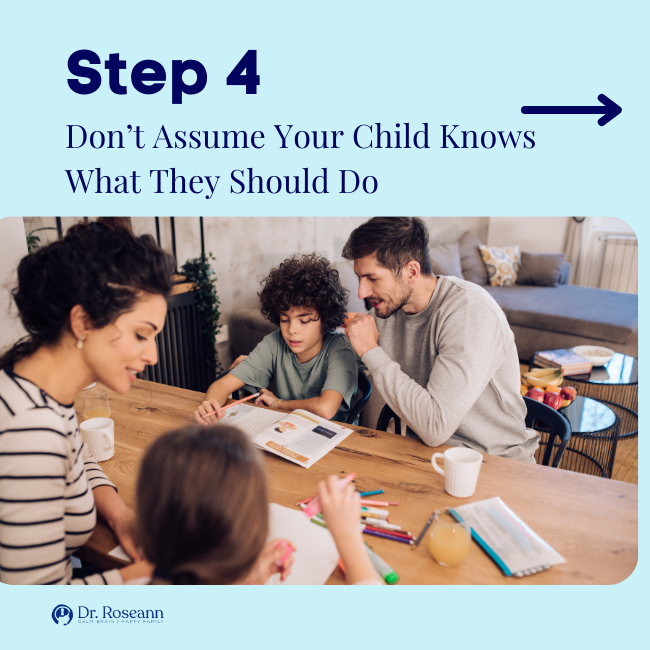
Children often lack the innate ability to regulate their emotions, leading to emotional dysregulation in children. Parents should guide them by defining emotional dysregulation and helping them understand their feelings, emotional processing disorder, and appropriate responses. It's important to remember that these kids may struggle to self-regulate despite being bright and aren't acting like this on purpose.
Say:
- Guidance phrases like “Let's think about what we can do differently.”
- Supportive statements such as “It's okay not to know; we can learn together.”
- Questions that encourage reflection like “What do you think might help you feel better?”
Don't Say:
- Expectant questions such as “Why don't you know how to behave?”
- Negative remarks like “You should know better.”
- Blaming comments like “You're always so emotional.”
#5 Foster Coping and Problem Solving Skills
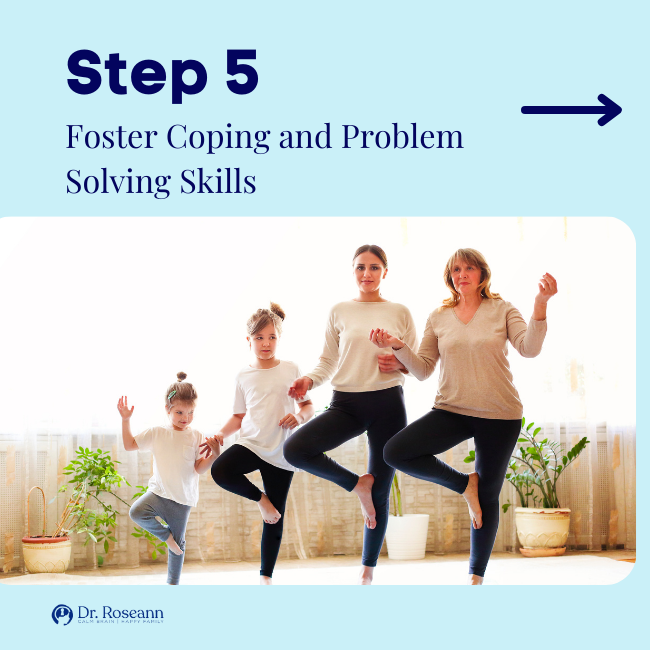
Teaching children coping mechanisms and problem-solving skills, such as emotional dysregulation in children, is essential in managing emotional dysregulation symptoms and emotional processing disorder not just today but help them be future stress slayers.
These strategies empower children to handle their emotions in a healthy, constructive way, especially when they may struggle to self-regulate and aren't acting like this on purpose.
Say:
- Encouraging strategies like “What helped you feel better last time?” or “Let's try a calming activity together.”
- Supportive statements such as “You have the tools to manage this” and “We can work through this together.”
- Questions that promote problem-solving like “What do you think might help in this situation?”
Don't Say:
- Invalidating their feelings, for example, “You're just overreacting.”
- Dismissive comments like “It's not a big deal” or “Stop making a fuss.”
- Negative remarks such as “You should be able to handle this by now.”
Co-Regulation and Self Regulation
Navigating emotional dysregulation in children, including emotional dysregulation in kids, can be daunting. Tailored strategies for emotional and behavioral development, addressing emotional dysregulation symptoms, are crucial. In this guide, we explore self-regulation and co-regulation, essential tools for managing emotional dysregulation and emotional processing disorder.
Techniques like deep breathing, mindfulness, and positive self-talk, alongside shared activities, strengthen the parent-child bond. These strategies foster emotional growth and understanding, especially when children struggle to self-regulate and aren't acting deliberately.
Practical Tips for Self-Regulation and Co-Regulation
Self-Regulation Strategies:
- Deep Breathing: Practice taking slow, deep breaths to calm the nervous system.
- Mindfulness: Engage in activities like mindful walking or eating to stay present.
- Positive Self-Talk: Remind yourself of your strengths and ability to handle challenges.
Co-Regulation Strategies:
- Reading Together: Share a book to foster calmness and bonding.
- Nature Walks: Spend time outdoors to reduce stress and connect.
- Relaxation Techniques: Practice yoga or guided meditations together to promote calmness.
These strategies aim to not only help regulate emotions but also strengthen the emotional connection between parent and child, fostering a nurturing environment for emotional growth.
Don’t Forget To Look at Common Emotional Triggers
Understanding and empathizing with children's emotional challenges, including emotional dysregulation in children, is crucial for parents, caregivers, and educators. Recognizing and addressing common emotional triggers associated with emotional dysregulation is essential for nurturing their emotional well-being and effectively managing emotional dysregulation and emotional processing disorder.
It's natural to be concerned when children experience emotional turmoil. Remember that emotional dysregulation often arises from common triggers encountered in daily life.
Common emotional triggers:
- Feeling Overwhelmed: Provide a safe and calm space.
- Tiredness: Ensure consistent sleep and bedtime routine.
- Hunger: Maintain regular meal and snack times.
- Sensory Overstimulation: Reduce environmental stimuli.
- Feeling Misunderstood/Not Heard: Practice active listening.
- Change in Routine: Maintain a predictable structure.
- Conflict with Peers: Teach conflict resolution.
- Academic Pressure: Create a supportive learning environment.
- Feeling Excluded: Foster inclusion.
- Lack of Autonomy: Offer age-appropriate choices and responsibilities.
Recognizing and empathizing with these common emotional triggers is a shared journey for parents, caregivers, and educators. It's a journey that involves patience, understanding, and unwavering support as you work together to guide children through the complexities of their emotional world. When we reinforce coping skills, children have the ability to heal a dysregulated brain and behavior.
Remember, it's not just about managing emotional dysregulation; it's about nurturing emotional growth, understanding, and resilience in your child's unique emotional landscape.
If you are ready to address your child’s or teen’s dysregulated behavior, then our BrainBehaviorReset™ Program is your next step. Take our solution matcher or listen to my It’s Gonna Be OK! Podcast for parents and these will guide you to the right solution for you.
Citations:
American Academy of Pediatrics. (2021). Addressing Early Childhood Emotional and Behavioral Problems. Pediatrics.
Chervonsky, E., & Hunt, C. (2019). Emotion regulation, mental health, and social wellbeing in a young adolescent sample: A concurrent and longitudinal investigation. Emotion, 19(2), 270-282. https://pubmed.ncbi.nlm.nih.gov/29697988/
Dr. Roseann Capanna-Hodge was the featured expert in this Healthline article:
Healthline. (2019.). Self-regulation skills. Retrieved from https://www.healthline.com/health/childrens-health/self-regulation-skills
Dr. Roseann Capanna-Hodge is a licensed mental health expert that is frequently cited in the media:
- CBS2 New York (Article) Experts Offer Tips On How To Help Children Deal With Anxiety.
- PIX 11 News How you can help your kids manage holiday disappointment amid the COVID-19 pandemic
- Yahoo Why does my kid have to win all the time?
Are you looking for SOLUTIONS for your struggling child or teen?
Dr. Roseann and her team are all about science-backed solutions, so you are in the right place!
Grab your complimentary copy of
147 Therapist-Endorsed Self-Regulation Strategies for Children: A Practical Guide for Parents
Dr. Roseann is a Children’s Mental Health Expert and Licensed Therapist who has been featured in/on hundreds of media outlets including The Mel Robbins Show, CBS, NBC, PIX11 NYC, Today, FORBES, CNN, The New York Times, The Washington Post, Business Insider, Women’s Day, Healthline, CNET, Parade Magazine and PARENTS. FORBES called her, “A thought leader in children’s mental health.”

She coined the terms, “Re-entry panic syndrome” and “eco-anxiety” and is a frequent contributor to media on mental health.
Dr. Roseann Capanna-Hodge has three decades of experience in working with children, teens and their families with attention-deficit hyperactivity disorder (ADHD), autism, concussion, dyslexia and learning disability, anxiety, Obsessive Compulsive Disorder (OCD), depression and mood disorder, Lyme Disease, and PANS/PANDAS using science-backed natural mental health solutions such as supplements, magnesium, nutrition, QEEG Brain maps, neurofeedback, PEMF, psychotherapy and other non-medication approaches.
She is the author of three bestselling books, It’s Gonna Be OK!: Proven Ways to Improve Your Child's Mental Health, The Teletherapy Toolkit, and Brain Under Attack. Dr. Roseann is known for offering a message of hope through science-endorsed methods that promote a calm brain.
Her trademarked BrainBehaviorResetⓇ Program and It’s Gonna be OK!Ⓡ Podcast has been a cornerstone for thousands of parents facing mental health, behavioral or neurodevelopmental challenges.
She is the founder and director of The Global Institute of Children’s Mental Health, Neurotastic™Brain Formulas and Dr. Roseann Capanna-Hodge, LLC. Dr. Roseann is a Board Certified Neurofeedback (BCN) Practitioner, a Board Member of the Northeast Region Biofeedback Society (NRBS), Certified Integrative Mental Health Professional (CIMHP) and an Amen Clinic Certified Brain Health Coach. She is also a member of The International Lyme Disease and Associated Disease Society (ILADS), The American Psychological Association (APA), Anxiety and Depression Association of America (ADAA) National Association of School Psychologists (NASP), International OCD Foundation (IOCDF).
© Roseann-Capanna-Hodge, LLC 2023



